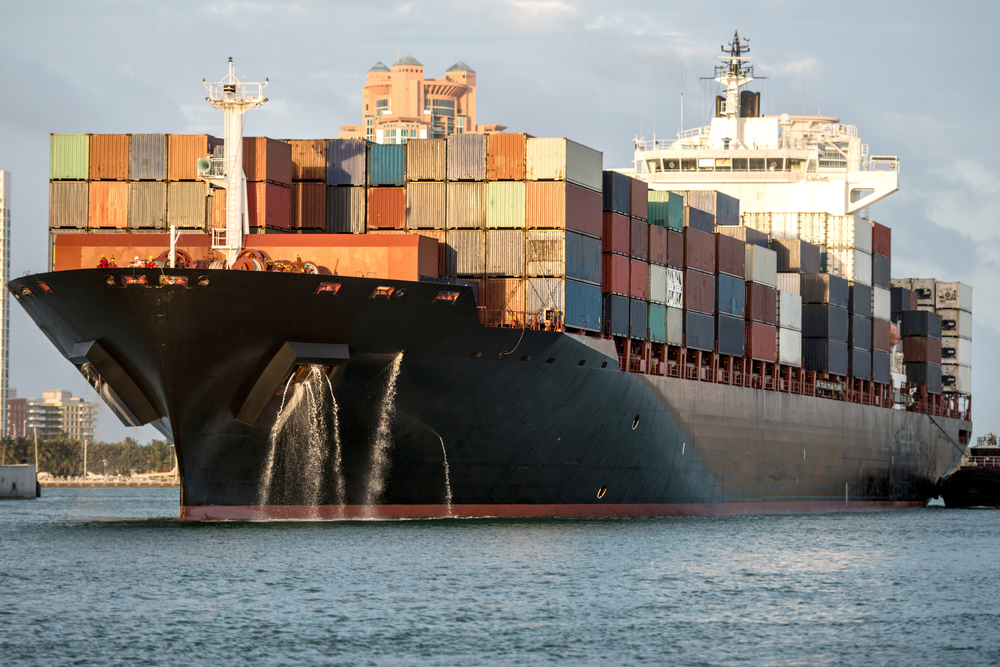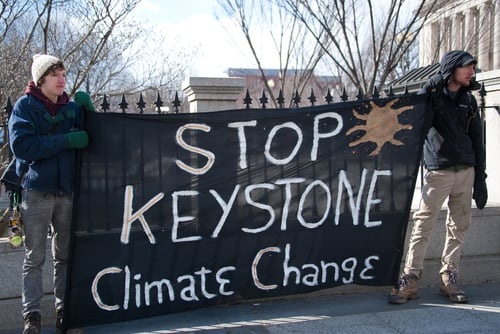IMO Part Deux: International Maritime Emissions in Focus in Brussels

The International Maritime Organization (IMO) is meeting in Brussels this month, and one of the main topics of discussion is a proposed charge on the international shipping sector’s greenhouse gas emissions. Backers of the proposed carbon levy include the European Union, Japan, Canada, and multiple Pacific Island nations who are low lying and especially vulnerable to climate impacts.
One of the goals of the proposed levy on carbon being discussed is pushing investment into lower carbon intensity vessels and shipping systems to combat the sectors emissions overall. International groups see such a levy as well as an additional adopted fuel standard as the only meaningful ways to guarantee progress going forward. They also see it as the best way to avoid piecemeal National fuel & emissions standards on ports within different nations across international routes.
On the opposing side are the United Arab Emirates, China, Brazil, and several additional South American countries who cite potentially negative GDP impacts of a carbon levy as a disincentive for developing nations. According to Reuters, the University of Sao Paulo found that African and South American countries would be hardest hit by a levy and see an 0.13% negative impact on their GDP. In response to this concern, Brazil, along with the UAE, China, and Norway have instead proposed a “global fuel intensity limit” with financial penalties for breaches of the agreement in lieu of the $150 per ton carbon levy proposal.
As we have discussed previously, the international shipping sector is notoriously difficult to address from an emissions standpoint, as obviously the involvement of many sovereign nations at many different socioeconomic levels complicates the adaptation of rules, and even in the event of regulatory adoption, the question of enforcement and fine collection becomes difficult at best. We saw this with the rollout of IMO 2020 regulations, when the IMO capped sulfur content in marine fuels and questions were raised about supply and phase in options versus “switch flipping” because of the difficulty of enforcing regulations across multinational supply points/ports. (You can get a refresher on IMO 2020 here: IMO Raises Questions on Markets, Supply Impacts ).
However, the headache involved with international rules and enforcement would seem to pale in comparison to the prospect of no agreed upon international standard, as in the absence of an agreement the expected outcome is that different countries develop their own standards on a national level. National standards can vary widely across countries, obviously, and it can quickly become a logistical nightmare for global companies to ensure they are complying across multiple ports. This became glaringly apparent in the US, as the Biden Administration outlined an approach for Decarbonizing Transportation that included Maritime Vessels, and quickly ran into issues with guaranteeing that lower/zero emission fuels would be available at ports to ensure emissions stayed on target for US flagged vessels. It became immediately clear that addressing climate concerns across the segment would absolutely require international coooperation. (We went through some of those concerns when discussing the Decarbonization plan for the United States, you can read that here: "Transportation Decarbonization: Maritime Vessels” )
We will have to wait and see on the ruling out of Brussels. The meeting slated for September is the final deadline for the IMO to make a ruling on both a fuel standard and an emissions "price". The target emissions reduction for the segment is 20% by 2030 and net zero by 2050, which obviously will weigh heavily on the ultimate decision. The EU position is that both the fuel standard and the carbon levy are required to hit the previously agreed upon target emissions numbers, but the word on the street is we are most likely looking at an agreement in September on the fuel standard, and a postponement on carbon pricing. Stay tuned!


